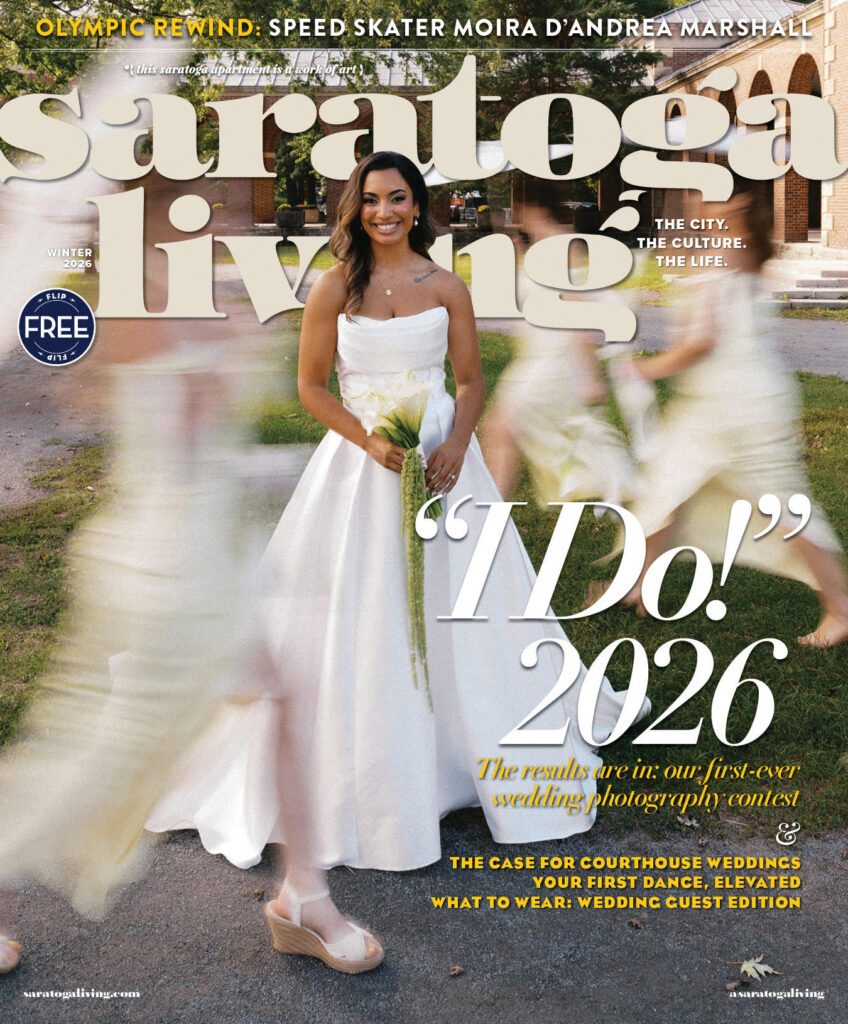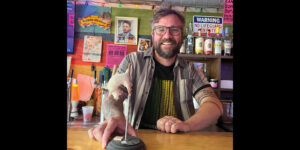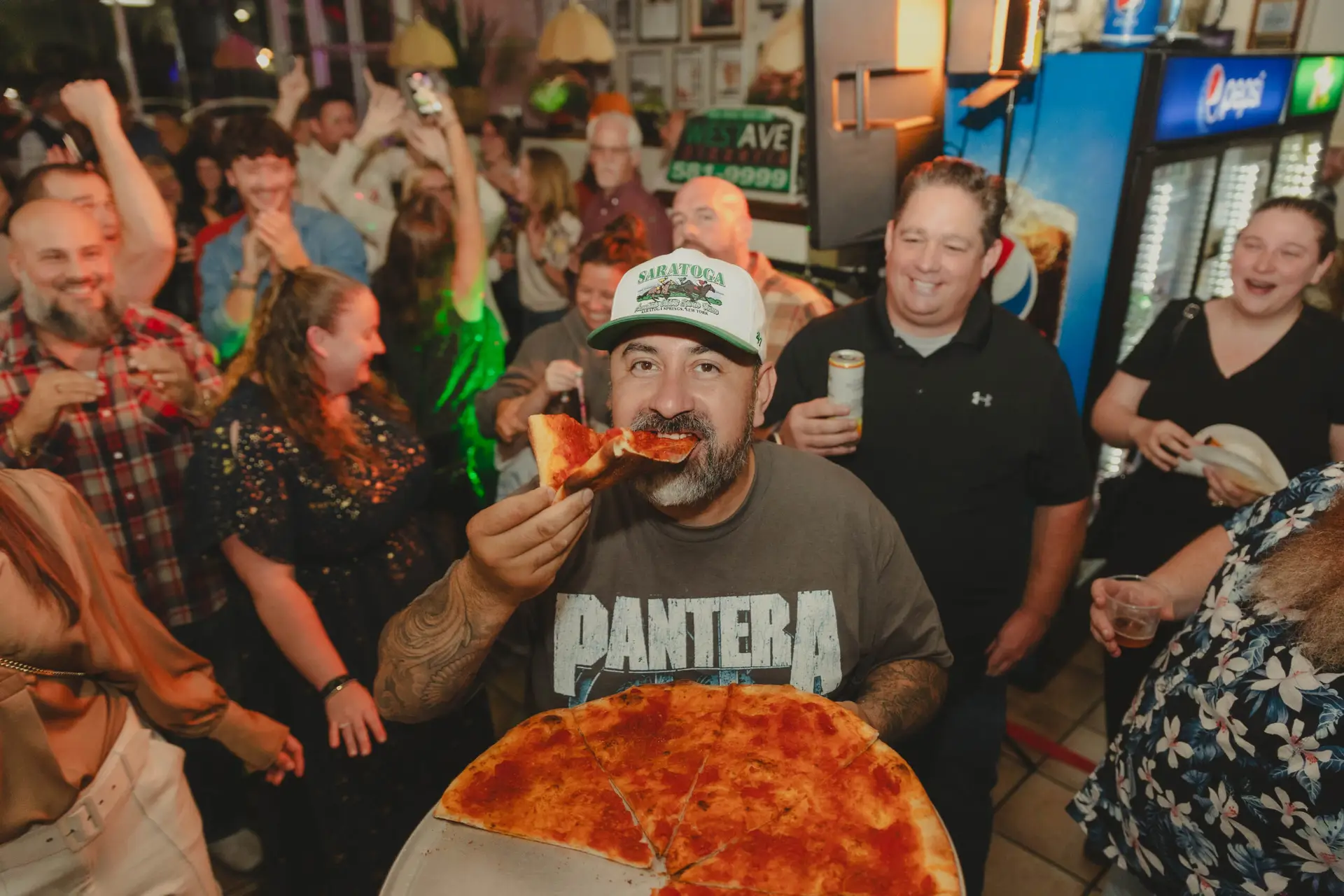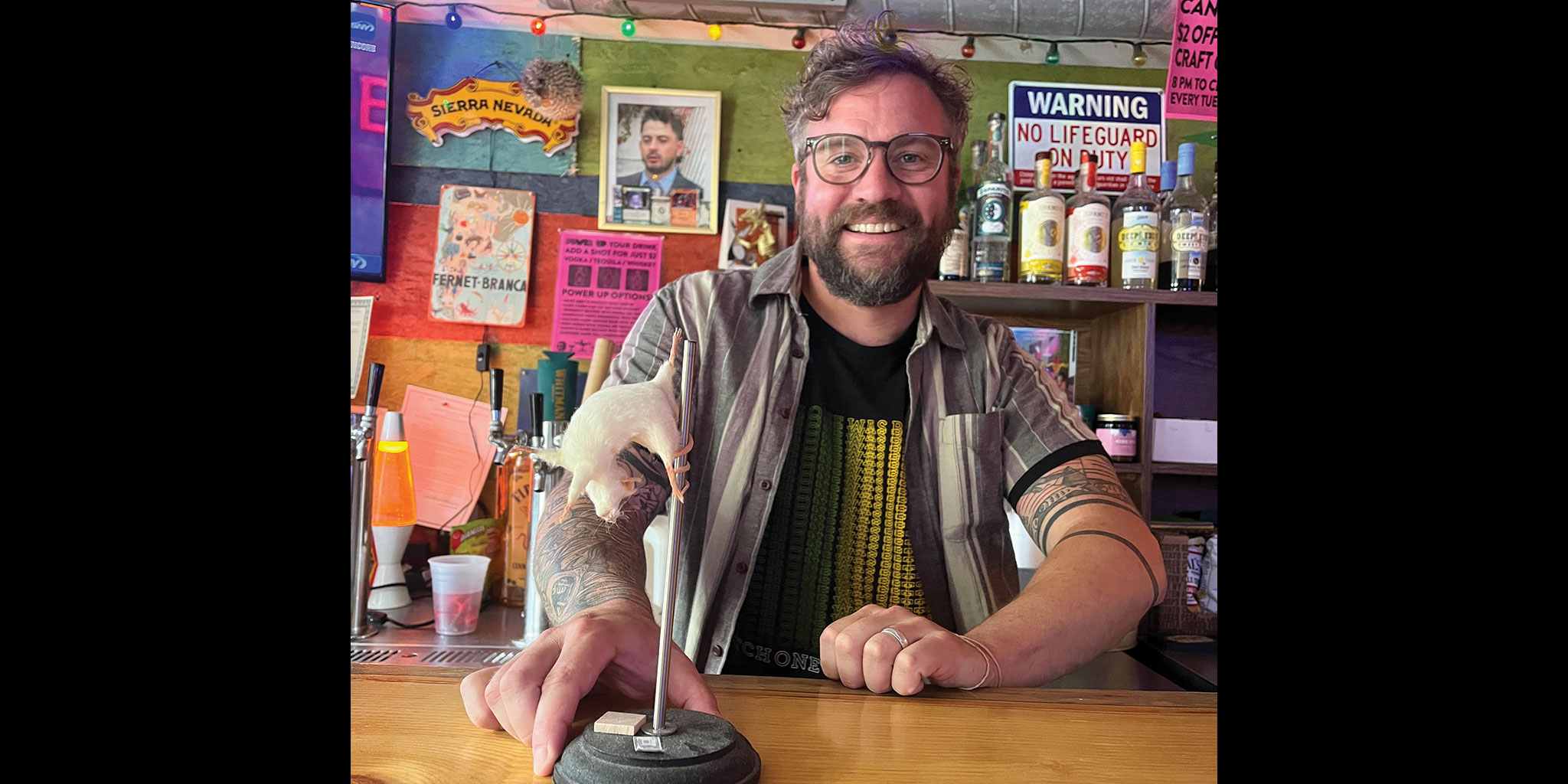I don’t know what it is about working out in a group setting, but it brings out two versions of me at the same time: This joker, who’s constantly saying self-deprecating, bordering-on-ridiculous things, and this full-tilt athlet-o-beast, who’s full of grunts, screams and curse words. All of this goes down, daily, at anatomie gym in Troy, and all of the folks I work out with at 6am know these Wills well.
At the beginning of any given anatomie class, Will A might exclaim, half-jokingly, “I’m glad there are a lot of nurses here; I might need to be stretchered out of here afterwards.” It’s actually true: There are a number of nurses that either go to or are on staff at anatomie, and I feel blessed to be around them. Even more so right now. Because there are thousands of nurses right now in the Capital Region, working alongside talented doctors, on the front lines of the COVID-19 crisis, risking their lives on a daily basis to make sure that the sick are cared for, contained and comfortable—and the virus doesn’t spread further. And many are doing this without the proper medical gear to protect them from harm. And yet, day in and day out, they keep coming back for more, as if the threat of infection or possible death is a small price to pay for protecting the lives of others. That, right there, is the definition of selfless.
As luck would have it, I was able to track down two nurses from my 6am class at anatomie, and both calmly told me about their day-to-day lives during this crisis. Join me in reading their words below—and above all, honoring them.
Shauna Paris, RN, CapitalCare Pediatrics in Troy
Have you had parents come in with children that they suspected had COVID-19? I’ve heard that children are less susceptible to the virus than adults.
So, here’s the thing. As these weeks have gone on, things have changed almost every day. In the beginning, we didn’t really have a standard for it; we had people coming in who did think that [their children] could have it, and we’d have to [put on a] mask and gown and all that kind of stuff to be in the room with them. Now, we’ve switched things around, so we’re trying not to see any type of respiratory issue in our office, just to prevent the spread. The big change is that we have to do a lot of tele-medicine and a lot of things over the phone that we wouldn’t typically do over the phone. The thing that we always say about our office, is that, especially with parents, parents get nervous, and most of the time they just need somebody else to lay eyes on their kid and [provide] them some reassurance. So we’re very used to just coming in just for parental reassurance, even if it’s just a cold. We can’t just come in anymore; we have to figure out a different way to assess things, without [parents] having to come out and be exposed to something else.
Are you sending those folks that have respiratory issues directly to the hospital? What is the course of action?
The recommendations are that there’s no reason to go to the emergency room unless there’s shortness of breath. If it’s something that you’d typically manage at home anyway, or we would bring [you] to the office [for] and you’d manage after, it’s something we would do over the phone. We’re doing a lot of video medicine, which is different.
So, over FaceTime?
Pretty much, yeah.
So, HIPAA (The Health Insurance Portability and Accountability Act of 1996) has basically been waived?
[laughs] I don’t want to say “yes.” We’re doing our best. But it’s different. We are trying to abide by HIPAA as much as possible, but I will say that there are a lot of patients, or parents of my patients, who have my cellphone number now that wouldn’t typically have it. In this point and time, it’s the best thing that we can do to help.
Give me an idea of the medical equipment that you have. Do you feel like you have the proper equipment available?
We do, but it’s got to be conserved. They go back and forth—if you’re healthy, do you wear a mask anyway? For the most part, we don’t feel comfortable not wearing masks. I feel like if I’m carrying something, I need to protect other people from it. So, we’re wearing masks, usually, but that mask has to be saved, basically, until it gets dirty.
The normal protocol is to throw an N95 out right after you see a patient, right?
As soon as it was in a room with a patient, you’d throw it out.
What are you most worried about right now?
At first, I felt like, I’m not sick, so it’s OK. Now, I’m like, you can carry this on you for three days before you could attract any symptoms, so who knows if I was exposed to somebody who may’ve had it, and now I am carrying it. The biggest thing is going to be, once this is all over, just going [back] to normalcy, and everybody not being afraid to come out in public, come back into the office, be around somebody who’s coughing or sneezing and not be worried that they’re going to get something like [COVID-19].
What is the most important piece of advice you can give a person, who might think their child has COVID-19?
I think that, especially for a kid, COVID-19 or not, as long as they’re breathing OK, they’re hydrated, you can keep the fever down, it’s just reassuring to keep everybody at home and not spread it to other people out in public. We always have a doctor or nurse on call, 24/7, answering phone calls, just to reassure parents. It’s never a stupid question; it’s always OK to call and get another opinion or somebody else’s thoughts on what’s making you nervous.
Katelyn Arsenault, RN, Albany Medical Center (Post-op/Anesthesia Care Unit)
Have you dealt with any patients who have or believe they have COVID-19?
When we go into work, the nurses themselves and the healthcare providers get checked for any symptoms and temperatures. That’s the same with patients before they go into surgery. We ask them if they have any symptoms, or even their family that brought them, [and] they get checked, too. We did just have a patient, who [doctors] ended up testing; we don’t know if the results were positive or negative, but they had reason to test [the patient]. We found out late that [the person had] been tested. The patient, at least, had a mask on, but for our safety, we put on our full getup—our N95 masks, goggles, gown—and we have [that person] in a negative pressure room, [with] the doors closed, and [we] went about as if they had it, even though we didn’t know. But it’s better to be safe than sorry.
When the patients come out to the PACU (Post Anesthesia Care Unit), [the medical staff is] trying to establish protocols on, if patients are for sure positive, they will get intubated [i.e. have a breathing tube inserted] in one of our negative pressure rooms, that will be their room, and then when they come out of surgery, they will be extubated [i.e. the opposite of intubated] in that room, and then we’ll go up to the room.
Do you feel like you have the proper amount of protective medical equipment?
As of right now, it seems as though we do, but they’re being strict with what we use. I don’t know if that is going to change when we get more cases, or, from what I’ve heard, [New York Governor Andrew] Cuomo might be bringing patients from New York City up this way, if need be. When nurses come in, even if they want to wear just a regular face mask, they’re making them wear that same face mask all day long, instead of getting new ones throughout the day. We would normally get new ones throughout the day. I don’t think that we’re as prepared for this situation as we thought we could be. I think [the outbreak] kind of came on fast and furious, especially in New York City.
What are you most worried about right now?
I guess what I’m most worried about, to be specific to my unit, is people coming out [of surgery] who have [the virus], and we’re not going through the protocols properly. If they’re putting all these protocols into place, [and] someone has it and they just bring the patient out, [that person’s] extubated, the patient’s coughing everywhere…that’s my main concern. Then, we’re more at risk to get it, because, if we’re not wearing a mask, because we’re not having symptoms or feeling fine, then now I could be a carrier and give it to other people.
So, in your unit, if you’re not working with a patient, you’re just walking around without the protective gear you’d need.
Anesthesia is the group that will intubate and extubate, but we take care of those patients after surgery. If the patient is going to go into the room after surgery to get extubated, we will most likely be in the room with them when they’re being extubated. And then we’ll take care of them from that point onward, until they go back to their room. Eventually, we’ve been told our unit could potentially be, if we get more patients who have [COVID-19] in the hospital, turned into an ICU (Intensive Care Unit). So, I’m kind of nervous about that, too.
What’s the most important thing you can advise people, currently, about this situation? In your unit, those patients probably have to be there already, right?
I would say, if you don’t need to have the surgery right now, don’t have the surgery. Because we’ve had some cases where I don’t know if [the patient] necessarily needed to [have surgery] when they did. They could’ve probably postponed [it].
One of my fellow nurses was saying, because it was nice out [one day], they saw all of these people in the park, hanging out. Just because it’s warm doesn’t mean the quarantine’s over. Just stay home, let’s ride this out and let’s just keep everybody safe, so we can limit the number of cases that we get in Albany.
Read Saratoga Living‘s other “What It’s Like” features below:
What It’s Like Being A Parent Who Believes His Child Has COVID-19
What It’s Like Being A Small Business Owner During The COVID-19 Pandemic
What It’s Like Being A Capital Region Doctor On The Front Lines Of The COVID-19 Outbreak
What It’s Like Grocery Shopping During The COVID-19 Pandemic (Opinion)















